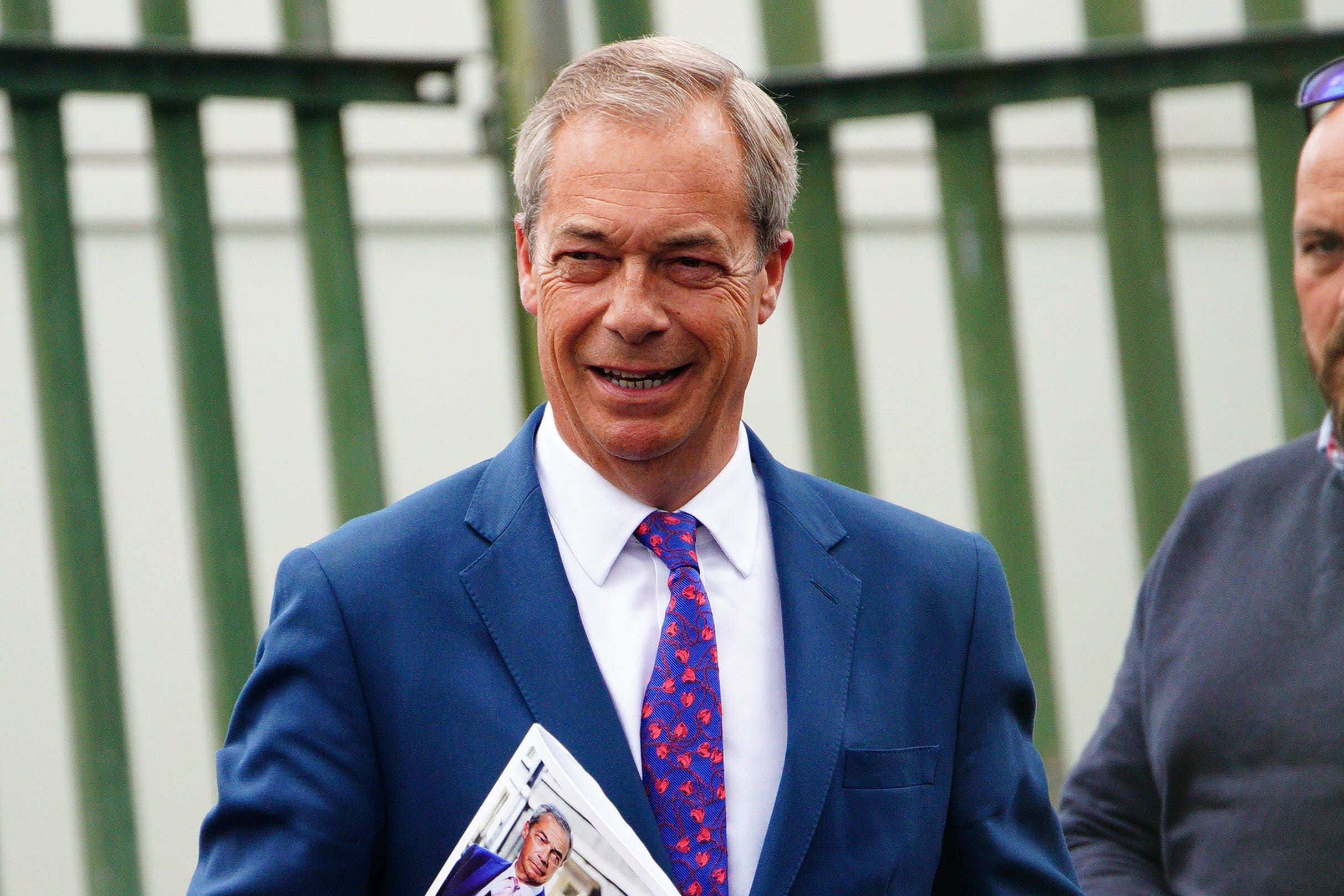What does Nigel Farage hope to achieve with Reform’s election pledges?
The party has seen its average poll rating climb, with a YouGov poll last week putting them at 19% to the Tories’ 18% in voting intention.

Your support helps us to tell the story
From reproductive rights to climate change to Big Tech, The Independent is on the ground when the story is developing. Whether it's investigating the financials of Elon Musk's pro-Trump PAC or producing our latest documentary, 'The A Word', which shines a light on the American women fighting for reproductive rights, we know how important it is to parse out the facts from the messaging.
At such a critical moment in US history, we need reporters on the ground. Your donation allows us to keep sending journalists to speak to both sides of the story.
The Independent is trusted by Americans across the entire political spectrum. And unlike many other quality news outlets, we choose not to lock Americans out of our reporting and analysis with paywalls. We believe quality journalism should be available to everyone, paid for by those who can afford it.
Your support makes all the difference.Nigel Farage has launched Reform UK’s election promises in Merthyr Tydfil, South Wales, as his party looks to continue its strong showing in the opinion polls ahead of the July 4 General Election.
– So this is Reform’s manifesto?
Well, sort of. Reform UK’s document was titled Our Contract With You because leader Mr Farage said the word “manifesto” had become associated with “lies” told by the main Westminster parties.
The document is 28 pages long, including the front and back covers, and contains policy pledges and a number of photos of Mr Farage.
– How important a moment is this for Reform?
After all the talk from Mr Farage and Reform UK chairman Richard Tice to drum up awareness for their party, they now have a document to present to voters which fleshes out their policy pledges ahead of July 4.
But, if Mr Farage is to be believed, their ambitions extend beyond the next few weeks. In his concluding remarks introducing the pledges, Mr Farage said the party’s “real ambition is the 2029 general election”.
He said: “But this is our first big push.”
– How has the party been faring so far?
On the day Prime Minister Rishi Sunak called the election, Reform was averaging 11% in the opinion polls. The party has seen its average rating climb, with a YouGov poll last week putting them at 19% to the Tories’ 18% in voting intention.
Pollsters caveated that Reform’s lead was within the margin of error but it was the first time they had edged past the Conservatives.
The party was formed in 2021 as a relaunch of Mr Farage’s previous Brexit Party and this is their first general election. Their first MP was Lee Anderson, a former Tory party deputy chairman who defected earlier this year.
It is expected that Reform will pick up many votes but this will not necessarily translate into winning many seats.
– What does the Reform document contain?
It begins with five core pledges, including two on immigration, NHS waiting lists, benefits and energy bills.
In a move likely to appeal to some Tories, there is a commitment to leave the European Convention on Human Rights (ECHR) and a policy of sending migrants who arrive in small boats back to France.
The Conservative manifesto repeated promises to get Rwanda flights off the ground but stopped short of threatening to walk away from the ECHR.
Reform also argues the income tax personal allowance should be increased to £20,000, the threshold for paying the higher rate raised to £70,000, and inheritance tax on estates under £2 million scrapped.
Fuel duty should be slashed by 20p per litre and NHS waiting lists eliminated in two years with an extra £17 billion a year for health.
– With Labour and the Conservatives facing questions over the tax implications of their manifestos, what is the cost of Reform’s plans?
The document implies spending an extra £141 billion a year on tax cuts and various policy pledges.
This would be paid for by £156 billion of savings in public spending and an assumption of increased tax revenue from 1%-1.5% extra economic growth.
Mr Farage said the party was engaged in “radical fresh thinking on economics”. He added that the UK was “skint” and “in real trouble” as he suggested having a “slimmed-down public sector” while maintaining services.
Our ambition is to establish a bridgehead in Parliament, and to become a real opposition to a Labour government
The Institute for Fiscal Studies think tank said Reform’s plans were based on “extremely optimist assumptions” about growth and the sums “do not add up”.
– Who does Reform hope the policies will appeal to?
Reform is aiming to pick up votes from the two main Westminster parties, but its main objective is to replace the Tories as the main party on the right of British politics.
Mr Farage said: “Our ambition is to establish a bridgehead in Parliament, and to become a real opposition to a Labour government.”
With that in mind, tougher policies on immigration are likely to appeal to some Conservative MPs who believe Mr Sunak and has predecessors have not gone far enough.
Some of those Tory figures are open to joining forces with Mr Farage should he win in Clacton and secure a spot in the Commons at his eighth attempt. But not everyone in the Conservative Party is a fan of Mr Farage and they have voiced their opposition to him.